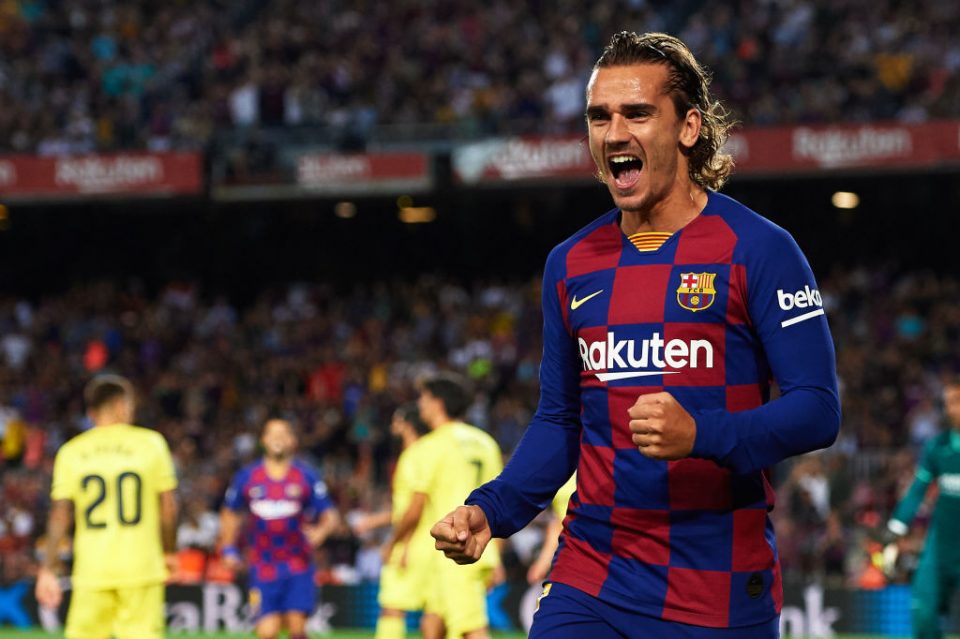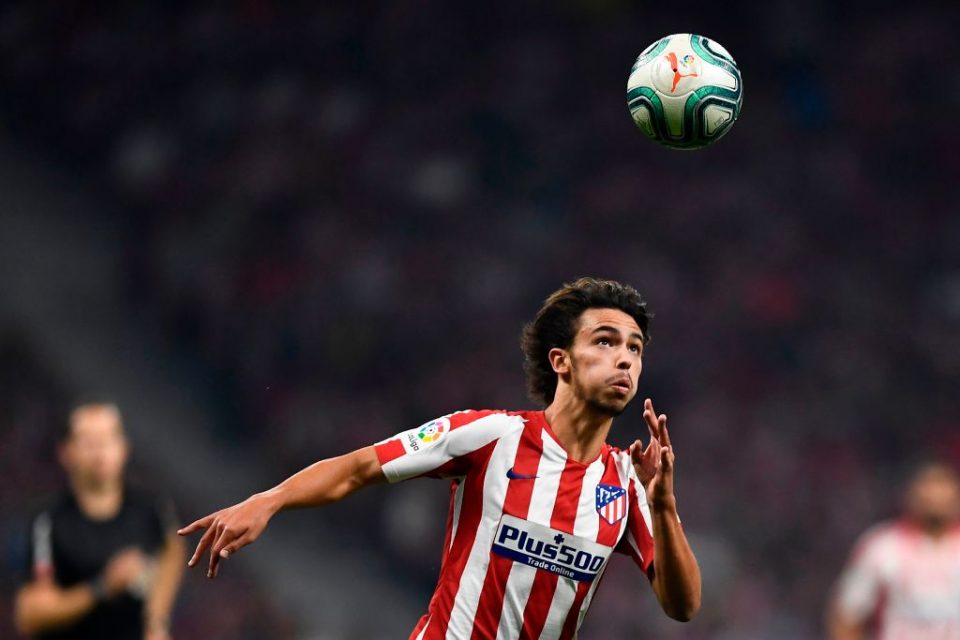23 Capital: Meet the London-based finance company behind Barcelona’s signing of Antoine Griezmann and Atletico Madrid’s deal for Joao Felix

Football’s two biggest deals of the summer transfer window had something in common, and not just that Atletico Madrid was either the buying or selling club.
The other unifying factor in the signings of £113m Portuguese sensation Joao Felix and £108m France forward Antoine Griezmann was the involvement of financing from London-based 23 Capital on one or both sides of the transaction.
That fact is both a sign of the sport’s shifting sands and the growing influence of 23 Capital, which was only set up five years ago, has been backed by billionaire George Soros and has quickly become a major player in a market where banks fear to tread.
Read more: Crystal Palace are being hawked for sale with a £210m price tag
The company is the brainchild of two men: Jason Traub, who cut his credit teeth in a 13-year stint at Investec, and Stephen Duval, whose commercial nous was honed at sportsbiz heavyweights IMG and SFX.
Traub and Duval spotted a gap in the market for a firm that could offer finance to entities in the worlds of sport, music and entertainment, where intangible assets and cash flows are king and traditional lenders run for cover.
So they established 23 Capital in August 2014, focusing initially on football, where Traub’s expertise lay.
“We did our first deal in November,” he tells City A.M. “Within four months we’d done £60m-£70m.”
The company now employs more than 50 people across four offices: its Fitzrovia headquarters; Barcelona, the sport business hub; Los Angeles, where most music and entertainment deals are done; and New York, which focuses on capital markets.
No magic
It was while at Investec, where Traub built the bank’s sports, media and entertainment offering, that he realised that the football industry was being under-served.
“We came to the conclusion that there’s no magic to this. It’s good credit, average credit, shitty credit. How well do you run your business? That really was the thesis,” he says.
“Nobody was doing this business, could make sense of it. That was the seed of it and over the next eight years [at Investec] we did about £1bn.
“That £1bn played out with zero defaults, through the biggest financial crisis of recent eras. Yet it was still incredibly difficult to build within a bank.”
He adds: “Transfers were the lead because there were rules. It goes to the integrity of football. You can’t buy Ronaldo for 200m, end up in an insolvency process, come out the other side clean, and have Ronaldo. Regulators will insist that transfers are paid.”
Traub explains the challenges faced by football clubs by comparing them to retailers.
“If you’re a retailer, an awful lot of your value is tied up in stock. That moves through and you would be able to get some of the older financings on the market,” he says.
“In football it’s never more true: they have a massive amount of their value tied up in stock, and that stock unfortunately is not an easy asset class to finance.”

Banks got burned in the 1980s and 1990s by long-term securitisations on football stadia, he says.
“Without thinking on the credit side, it’s only as good as the club and the strength of that going concern. There’s nothing you can do if it goes wrong – and they went wrong.”
Most recently, clubs seeking financing would have to turn to opportunistic lenders, such as funds charging up to 10 per cent, or lean on local relationships.
A friendly bank manager might green-light a loan of, say, £15m that did not head office approval if it bought them favour with their favourite team. “It was not a healthy relationship,” says Traub.
£150m negotiation
Football represents half of 23 Capital’s business, he says – the rest is music and entertainment, which centres around rights and publishing.
Of the football, some 40 per cent relates to transfers, but the company also provides financing for infrastructure projects such as stadium development.
“What we won’t do is fund into an operating expenditure requirement, unless there’s an exceptional circumstance as to why they’re losing 20m this year and it makes sense for that hole to be plugged,” he says.
Like those of Joao Felix and Griezmann, the transfers 23 Capital works on are those at the top of the market, where staged payment is necessary due to the size of the fees involved.
In practice, this means only deals of £20m or more and involving teams from the Premier League or their equivalents in Europe.
Initially, 23 Capital would strike an arrangement with one of the clubs in a transfer – usually the seller, who would be looking to cash in the receivable for an upfront payment. But increasingly, Traub says, the company is involved on both sides of the deal.
“We can solve it so that you [selling team] can get your money today, you [selling team] can defer it over a period of time, so that all you need to negotiate over is the cost of that. So you’ve brought that down from a £150m negotiation to £1.5m-£2m. And that can get solved in 10 minutes.”
Being a young, streamlined company allows 23 Capital to be nimble and act quickly when clubs demand it, he says.
“In this [summer 2019] window, one of the largest deals was done in five days, from the first call to the money being in the account. Don’t get me wrong, please don’t do that again, because everything else stops – you don’t want that. But you can. Traditionally, 2-3 weeks is the right timeframe.”
Longer-term, developing trust with clubs can allow 23 Capital to offer strategic services – such as restructuring a balance sheet, as it has for Portuguese giants Benfica – that Traub believes can keep them ahead of any competitors in the banking sector.
Barca loaner
Some football followers might be surprised to learn that Barcelona, one of the world’s three richest clubs who reported revenue of €990m in their most recent financial results, needed a loan to complete the signing of Griezmann.
Traub says even the biggest clubs can need short-term finance because, under pressure to spend from fans and unaccustomed to paying dividends, do not tend to stockpile large cash reserves.
“It’s the same for No20 in the Premier League and No1 in LaLiga – they need to invest, but the numbers are much bigger at Barcelona,” he says.
“You could say it’s exaggerated but then their revenue’s much bigger, their EBITDA’s much bigger. Like for like, it’s the same issue.
“If Bournemouth or Burnley are buying a £20m player and Barcelona £200m, it’s the same relative to their balance sheet and profit and loss.”
Seeing a club complete a high-profile signing is a “very tangible” reward for 23 Capital’s work, says Traub, although the Tottenham season-ticket holder cites a deal he facilitated while at Investec as being among his most satisfying.

“One of my proudest moments was being involved with a big transfer that took one of Arsenal’s best players away,” he recalls with a degree of mischief.
“I don’t want to get into the details but I did offer the best rates we could to make sure that deal could go through.”
Formula One, rugby, cricket, cycling, American college sports and mass participation events are all in 23 Capital’s sights as the company looks to continue its growth by expanding into other sports. Beyond that, Traub has simple ambitions.
“If you told me that in three years’ time we’d continue with our market penetration and growth such that we are helping more of those clients in more directions, that’s more than I could ask for,” he concludes. “That and to see if my little boy could one day play for Spurs.”
Main image credit: Getty
